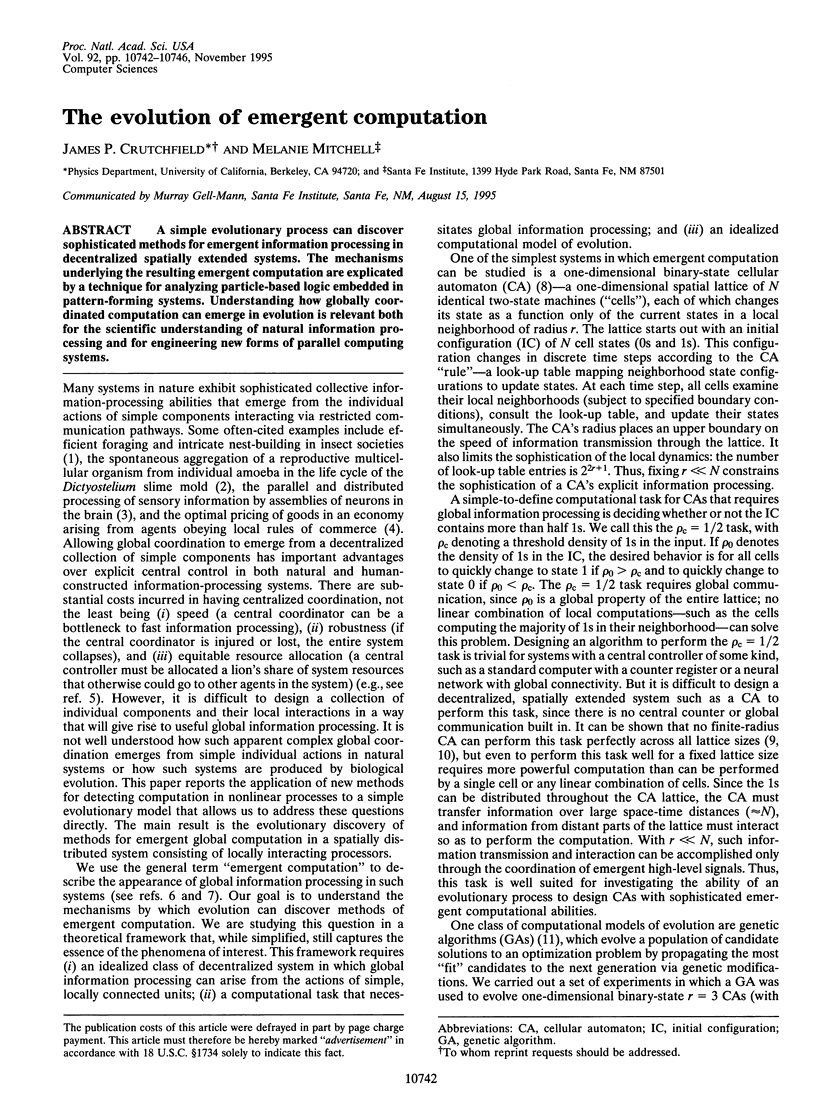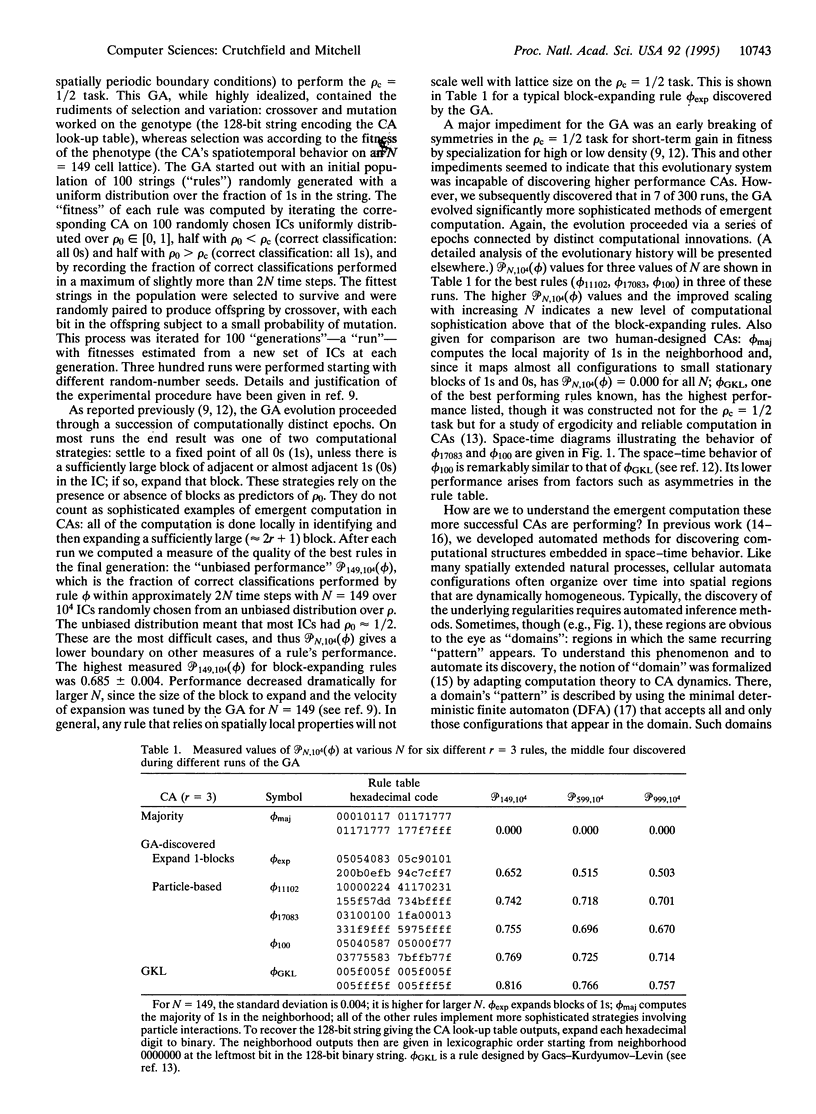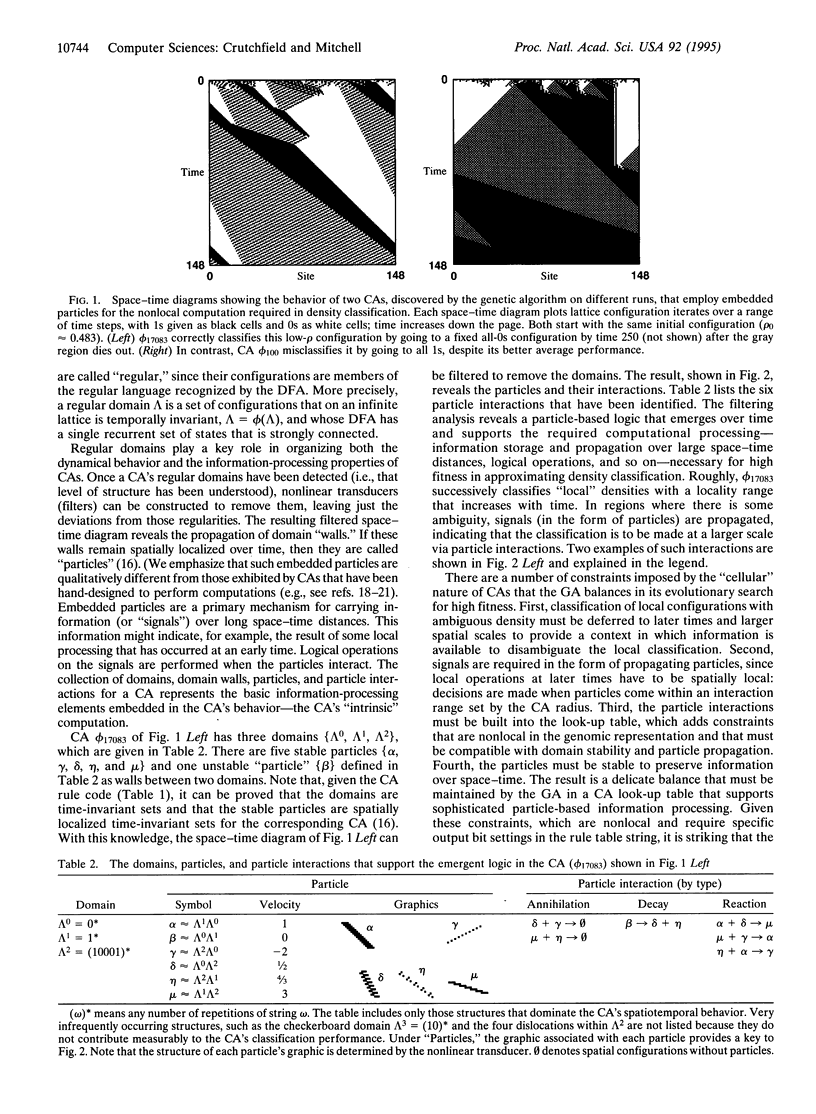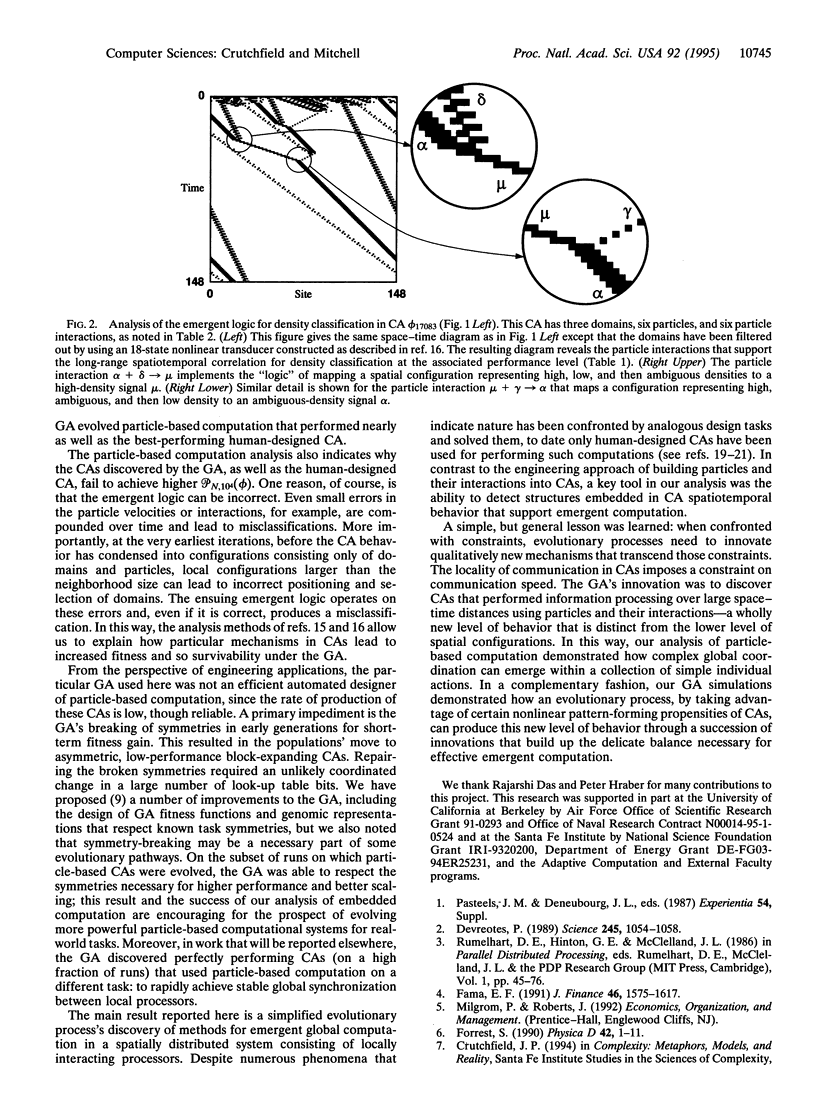Abstract
A simple evolutionary process can discover sophisticated methods for emergent information processing in decentralized spatially extended systems. The mechanisms underlying the resulting emergent computation are explicated by a technique for analyzing particle-based logic embedded in pattern-forming systems. Understanding how globally coordinated computation can emerge in evolution is relevant both for the scientific understanding of natural information processing and for engineering new forms of parallel computing systems.
Full text
PDF




Selected References
These references are in PubMed. This may not be the complete list of references from this article.
- Crutchfield JP, Young K. Inferring statistical complexity. Phys Rev Lett. 1989 Jul 10;63(2):105–108. doi: 10.1103/PhysRevLett.63.105. [DOI] [PubMed] [Google Scholar]
- Devreotes P. Dictyostelium discoideum: a model system for cell-cell interactions in development. Science. 1989 Sep 8;245(4922):1054–1058. doi: 10.1126/science.2672337. [DOI] [PubMed] [Google Scholar]
- Land M, Belew RK. No perfect two-state cellular automata for density classification exists. Phys Rev Lett. 1995 Jun 19;74(25):5148–5150. doi: 10.1103/PhysRevLett.74.5148. [DOI] [PubMed] [Google Scholar]



